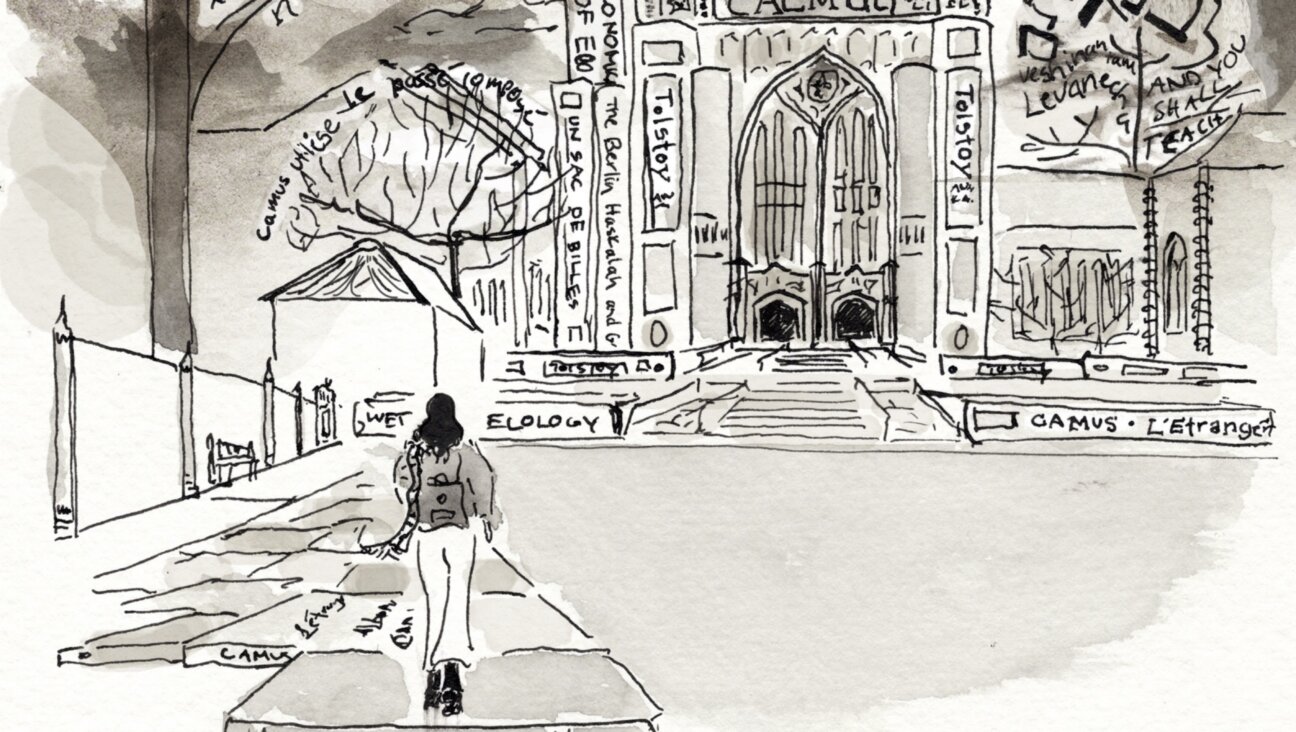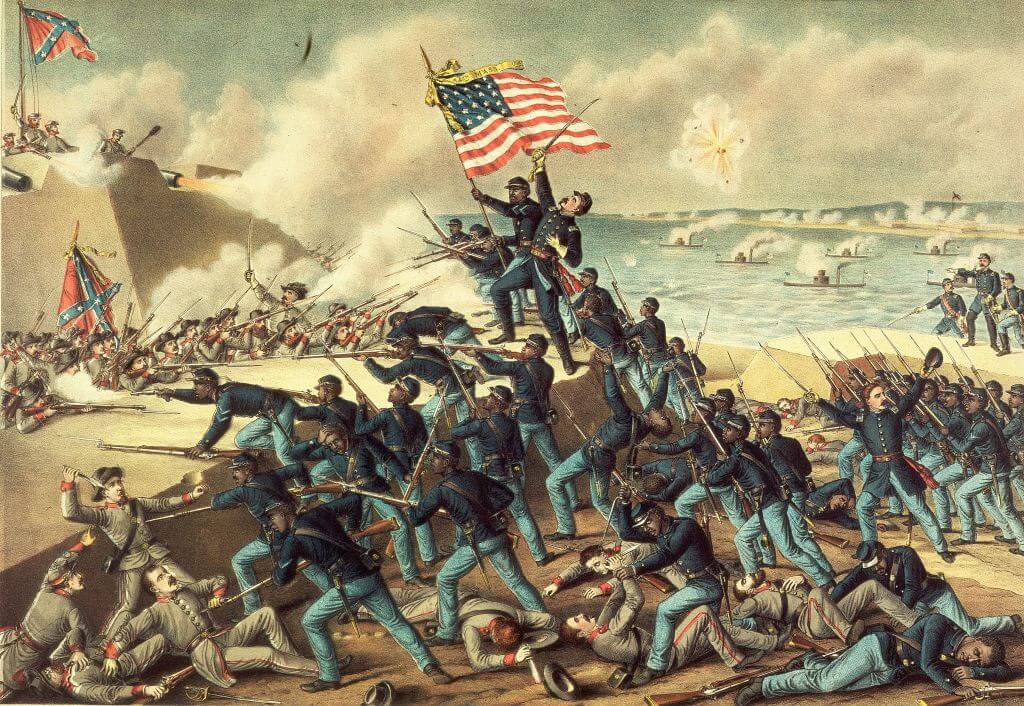Max Blumenthal’s ‘Goliath’ Is Anti-Israel Book That Makes Even Anti-Zionists Blush

Image by Courtesy of Max Blumenthal
There’s an unpleasant little debate sloshing around the Web lately that tells you all you need to know — and perhaps more than you want to hear — about the current state of relations between Israel and the left.
The debate revolves around an unpleasant book published October 1 by Nation Books, titled “Goliath: Life and Loathing in Greater Israel.” The author is Max Blumenthal, gonzo journalist, video provocateur and son of onetime Clinton aide Sidney Blumenthal. The book is the product, the author says, of four years’ work, including more than a year living in Israel and the Palestinian territories to study the facts on the ground.
As his title makes clear, he didn’t think much of the place. He’s written a collection of 73 short vignettes, weaving together reportage, history and interviews to show the suffering and unbroken spirit of the Palestinians and the callous cruelty of the Israelis. Lest anyone miss the point, many of his chapters have titles like “The Concentration Camp,” “The Night of Broken Glass,” “This Belongs to the White Man” and “How to Kill Goyim and Influence People.”
The hottest debate, though, isn’t over the book itself. It’s about a magazine column devoted to the book. It appeared October 16 in the left-wing weekly The Nation, whose publishing arm put the book out. It’s by Eric Alterman, the magazine’s sharp-tongued media columnist. Its title: “The ‘I Hate Israel’ Handbook.”
A prolific author, academic and liberal pundit, Alterman is regarded as a chronic Israel-basher by the Israel-right-or-wrong crowd, while devoted Israel-bashers call him a “member of the Israel lobby.” He stipulates that Israel’s “brutal occupation” inflicts “daily humiliations” on the Palestinians, but says Blumenthal “proves a profoundly unreliable narrator.” The book, he writes, shows “selectivity” toward truth. Its chapter titles are “juvenile,” its accounts “often deliberately deceptive.”
Alterman elaborated the next day in a blog post. That’s when things heated up. He said the magazine had asked him to write about Goliath, but he’d hesitated, wary of the “avalanche of personal invective” that comes whenever he writes about “BDS types,” meaning those engaged in the Boycott, Divest, and Sanctions campaign against Israel. He finally decided to proceed, wanting to be a “team player.”
Then the book arrived. “I expected to disagree with its analysis,” he wrote. “I did not expect it to be remotely as awful as it is…. It is no exaggeration to say that this book could have been published by the Hamas Book-of-the-Month Club (if it existed).”
The left-wing blogosphere erupted. Alterman was called an “ignoramus,” a “smearmeister” and, repeatedly, a “liberal Zionist.” One blogger, writing at the anti-Zionist group blog Mondoweiss.net, where Blumenthal is a regular contributor, questioned Alterman’s right to call himself a critic of Israel, since he sometimes defends it. Another, also at Mondoweiss, questioned The Nation’s judgment for assigning the review to a “liberal Zionist” known for “impassioned devotion to Israel.”
One blog after another took whacks at Alterman’s credibility: He misspelled the name of novelist Yoram Kaniuk (true). He unfairly ridiculed Blumenthal’s descriptions of the long-dead Israeli philosophers Berl Katznelson and Yeshayahu Leibowitz (arguable). He misrepresented Blumenthal’s substantive assertions about Israeli “fascism,” “racism,” “militarism” and more (entirely untrue).
But once you get past spell-checks and gotchas (for the record, Blumenthal refers to poet Allen Ginsberg as “Alan”; mentions the Canaanite god Moloch, from a Ginsberg poem, as “Mollock”; describes the moshav, a small-holders’ farming village, as a “collective farm,” and much, much more) the critics’ main complaint seems to be that Alterman’s review is the only one that’s appeared in print so far. Outside the far-left and anti-Israel blogosphere, “Goliath” has been ignored.
Blumenthal himself, answering Alterman in a Nation post October 23, seemed to want to blame the book’s invisibility on Alterman, claiming he was somehow “trying to frustrate debate.” Alterman, he wrote, is just the latest in a long line of “self-appointed enforcers” who have been trying—“especially since the assassination of Yitzhak Rabin” — to “suppress an honest, free and full debate.”
Blumenthal, on the other hand, intends “to loosen the blockade of suppression.” Among other things, he’s interviewed “all sorts of people who are not the usual sources cited by much of the US media, including Israeli dissidents, Palestinian citizens of Israel, Bedouin villagers, Palestinian popular protest leaders, members of the Knesset from across the spectrum, and a host of right-wing Israeli officials, especially from the younger generation.”
Where to begin? First, to the extent that “self-appointed enforcers” tried to limit debate on Israel, it was much worse in the 1980s. The last two decades have seen an explosion of robust discussion. How Eric Alterman might suppress that is unclear. As for the book’s supposedly unusual interviewees, they appear regularly, everywhere from Charlie Rose to The New York Times, Haaretz and the Forward.
Blumenthal doesn’t know the history and ignores the inconvenient bits of the present, which is one reason his book has flopped. Worse, he thinks he knows all he needs to know, and just what readers need to know. He describes Israel’s assault on Gaza without telling of the thousands of rockets bombarding Negev towns for years beforehand. He touchingly recounts the 2004 assassination of Hamas founder Abdel Aziz al-Rantissi but doesn’t mention the hundreds of Israelis killed by Rantissi’s suicide bombers. The Palestinians are guilty of nothing. Israel’s actions are entirely unprovoked, motivated by pure racism.
Strangest of all are his accounts of his interviews with prominent Israelis, from novelist David Grossman to politician Shai Hermesh, in which he preaches to them, browbeats them and then finds them storming out on him — or in Grossman’s case, asking Blumenthal to throw away his phone number. Why? Obviously, they’re unwilling to hear the truth.
Of all the aftershocks in the Blumenthal saga, though, none is more telling than his October 17 appearance at the University of Pennsylvania. His host was political scientist Ian Lustick, author of the September 15 New York Times essay, “The Two-State Illusion,” which argued for a single Israeli-Palestinian state.
Almost halfway through their 83-minute encounter (minute 34:00 on YouTube), Lustick emotionally asks Blumenthal whether he believes, like Abraham at Sodom, that there are enough “good people” in Israel to justify its continued existence — or whether he’s calling for a mass “exodus,” the title of his last chapter, and “the end of Jewish collective life in the land of Israel.”
Blumenthal gives a convoluted answer that comes down to this: “There should be a choice placed to the settler-colonial population” (meaning the entire Jewish population of Israel): “Become indigenized,” that is, “you have to be part of the Arab world.” Or else…? “The maintenance and engineering of a non-indigenous demographic majority is non-negotiable.”
Lustick appears stunned. And not only Lustick. Philip Weiss, founder and co-editor of Mondoweiss, who was in the audience, wrote afterwards, in a rare rebuke of his own writer, that he saw “some intolerance in that answer.”
We live in a “multicultural world,” Weiss wrote. There should be room for Israelis. “The issue in the end involves the choice between an Algerian and a South African outcome.” Mass expulsion versus coexistence. “I’m for the South African outcome.”
Blumenthal isn’t. It’s a chilling moment, even for the anti-Zionists among us.
Contact J.J. Goldberg at [email protected]
In an earlier version of this column, Max Blumenthal was misquoted to have said “The maintenance and engineering of a non-indigenous demographic population is non-negotiable.” The word “population” should have been “majority” and has been changed.

















